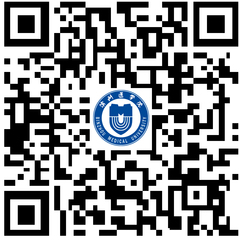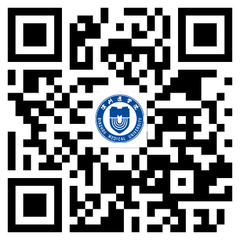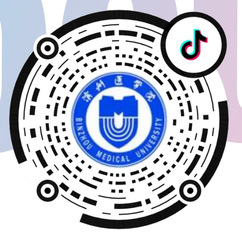From July 14 to 16, the High-end Academic Forum on Traditional Culture Translation and International Communication was held in Yantai under the guidance of Chinese Association for Research and Advancement of Chinese Medicine (CRACM), sponsored by Professional Committee of Traditional Culture Translation and International Communication, organized by Binzhou Medical University, and co-sponsored by Journal of Beijing International Studies University, Foreign Language Teaching and Research Press, and Fudan University Press. Experts and scholars in the field of translation and dissemination of traditional Chinese medicine from various institutions, hospitals and societies in China gathered together to focus on the theme “Translating China: Inheritance and Innovation” and discuss in depth how to promote multi-field, multi-form and in-depth exchanges and cooperation between Chinese culture, characterized by traditional Chinese medicine culture, and the diversified cultures of the world, so as to help Chinese culture and the culture of traditional Chinese medicine “go global”.
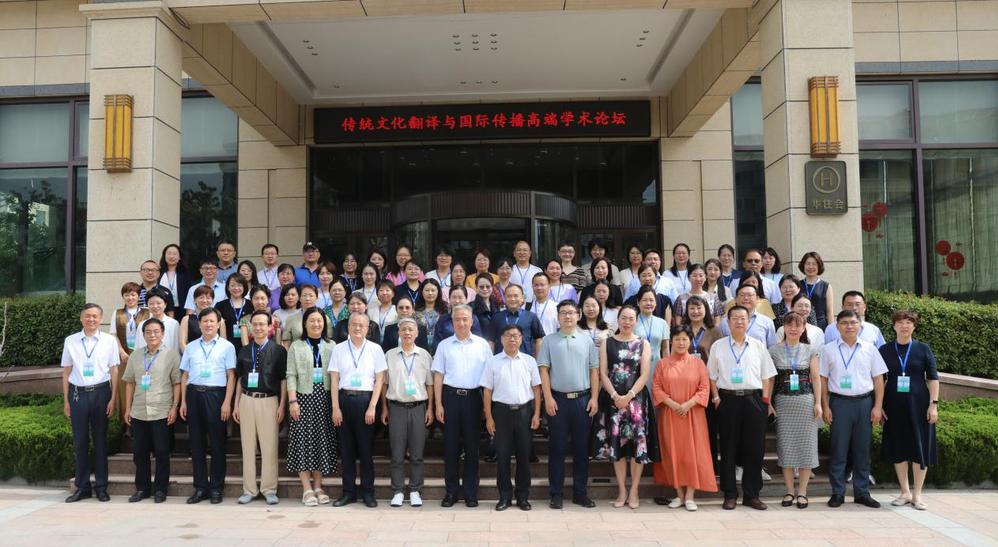
Attendees took a group picture.
At the opening ceremony, Vice President Wang Guangcheng, Wang Yahuang, Assistant Secretary-General of Chinese Association for CRACM and Director of Academic Division, and Professor Zhao Yanchun, Chairman of the Professional Committee of Traditional Culture Translation and International Communication, delivered speeches respectively.
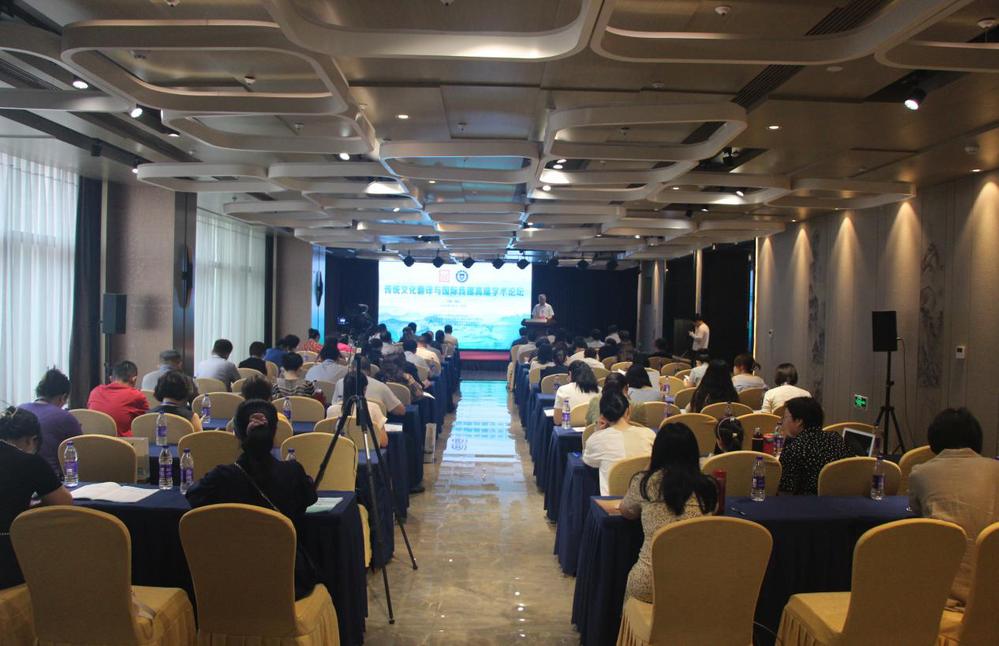
This is the opening ceremony.
Professor Wang Guangcheng in his speech extended a warm welcome to the experts and scholars attending the Forum. He introduced the basic situation of Binzhou Medical University, focusing on the development of medical language education and traditional Chinese medicine education. He said that the University attaches great importance to medical language education, traditional Chinese medicine cultural translation and international exchange. The University is one of the earliest universities on western medicine in Shandong Province to offer Chinese Medicine majors, and has set up Institute of Language and Health, Institute of Language Intelligence and Education and other institutes. He also said the University will take this high-end forum as a new start to further promote the integration of disciplines, actively make innovations in educational concept, enhance the integration of multi-disciplines and linguistics relying on the advantages of traditional Chinese medicine, rehabilitation medicine and other disciplines, continue to extend the reach of the content of medical English teaching and enrich teaching methods, cultivate applied and compound medical talents, and contribute to the in-depth implementation of the Culture Strength and Healthy China strategies.
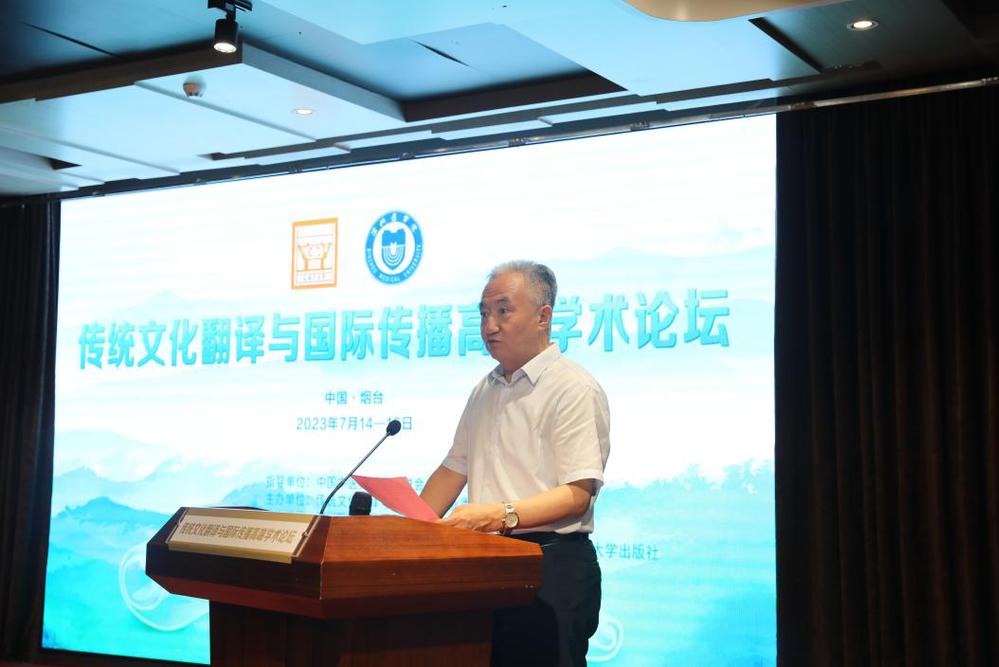
Wang Guangcheng delivered a speech.
Professor Wang Yahuang in his speech, expressed warm congratulations on the holding of the forum on behalf of Chinese Association for Research and Advancement of Chinese Traditional Medicine, and elaborated on the focus and direction of the work of the Association. He said the Association would continue to conduct international exchanges from three aspects: facing Japan and South Korea, cooperate with the governments of Shandong Province and Liaoning Province to promote the exchange of Chinese medicinal materials among China, Japan and South Korea; facing Southeast Asia, mainly Malaysia and Thailand, cooperate with the RCEP to hold the RCEP Forum on Traditional Chinese Medicine; facing the world, conduct cultivation and exchange of international talents in traditional Chinese medicine.
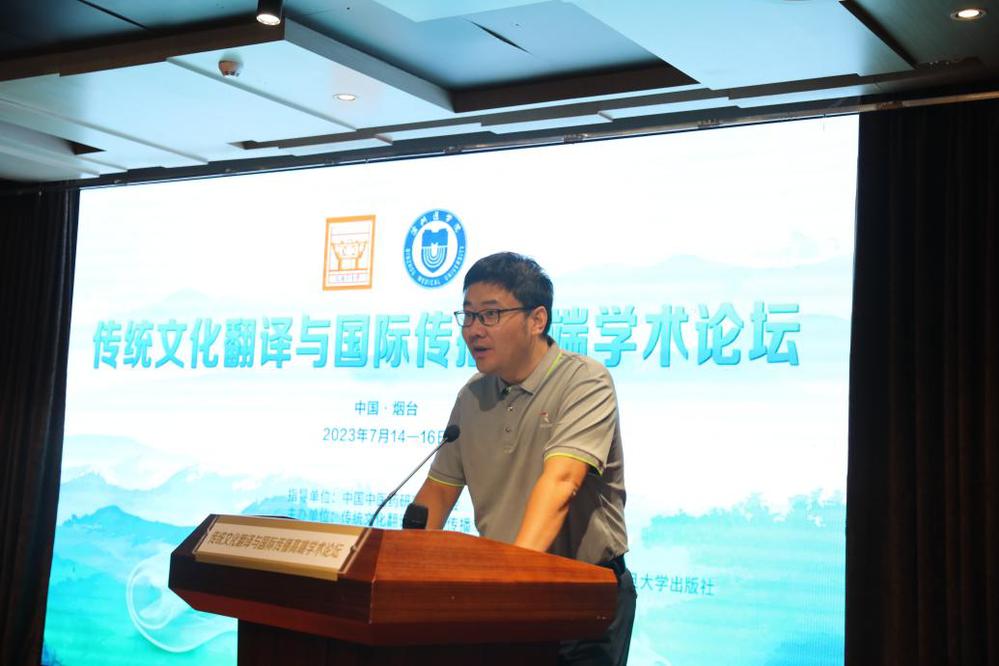
Wang Yahuang delivered a speech.
Professor Zhao Yanchun in his speech analyzed the positioning, missions and challenges faced by the Professional Committee of Traditional Culture Translation and International Communication. He pointed out that the Committee is a Level-2 society under the Chinese Association for Research and Advancement of Chinese Traditional Medicine, and its positioning is to face the world and present China’s stories. The Committee members are passionate about traditional Chinese culture, especially the broad and profound traditional Chinese medicine culture, but some of the researchers lack of the knowledge of traditional Chinese medicine. There also exist problems, such as incomplete translation system of traditional Chinese medicine. Therefore, the discourse and conceptual system of traditional Chinese medicine culture translation and communication face severe challenges. He hoped that through this forum, full discussions on the translation and international dissemination of traditional Chinese medicine culture can be carried out from different levels, and measures to form consensus and effectively respond to challenges can be explored.
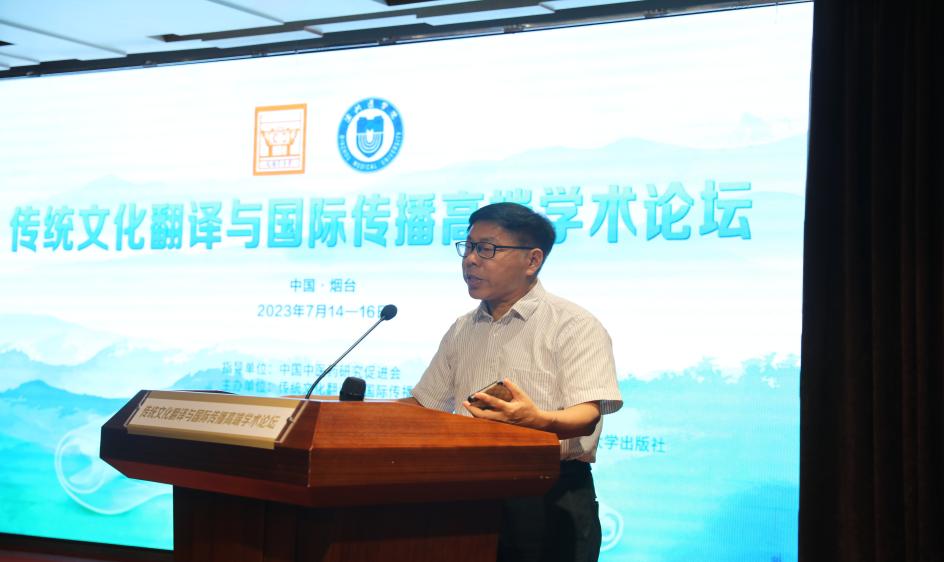
Zhao Yanchun delivered a speech.
After the opening ceremony, Zhao Yanchun, Zhou Xiaofei, Li Qinghua, Zhu Jianping, Liu Zhenqian, and Li Xiaoying respectively gave keynote speeches on the topics of The Integration of Traditional Chinese Medicine and Literature - The Perspective of Traditional Chinese Medicine in the English Translation of Li Sao , “Comparative Translation of the Traditional Chinese Medicine Discipline - Taking Compendium of Materia Medica as An Example , “Reflections on the Normalization of English Translation of Traditional Chinese Medicine Terms, Western Medicine absorbing Traditional Chinese Medicine and the Significance of TCM Cultural Dissemination , Translation as an Authoritative Game - Research on Chinese Culture and Chinese Academic Translation (Taking the Translation of Dust Settled Down As An Example) , and “Study on the Perception of English Translation of Culturally-loaded Words of Traditional Chinese Medicine Based on the Corpus of Phase of Metal”, and they shared the latest research results of the related fields.
The forum also had two thematic sub-forums, in which 10 scholars gave speeches and more than 80 scholars participated in the seminar. They said the experts and scholars discussed the development of culture translation and international communication of traditional Chinese medicine from different perspectives, which was an interdisciplinary exchange and they benefited a lot.
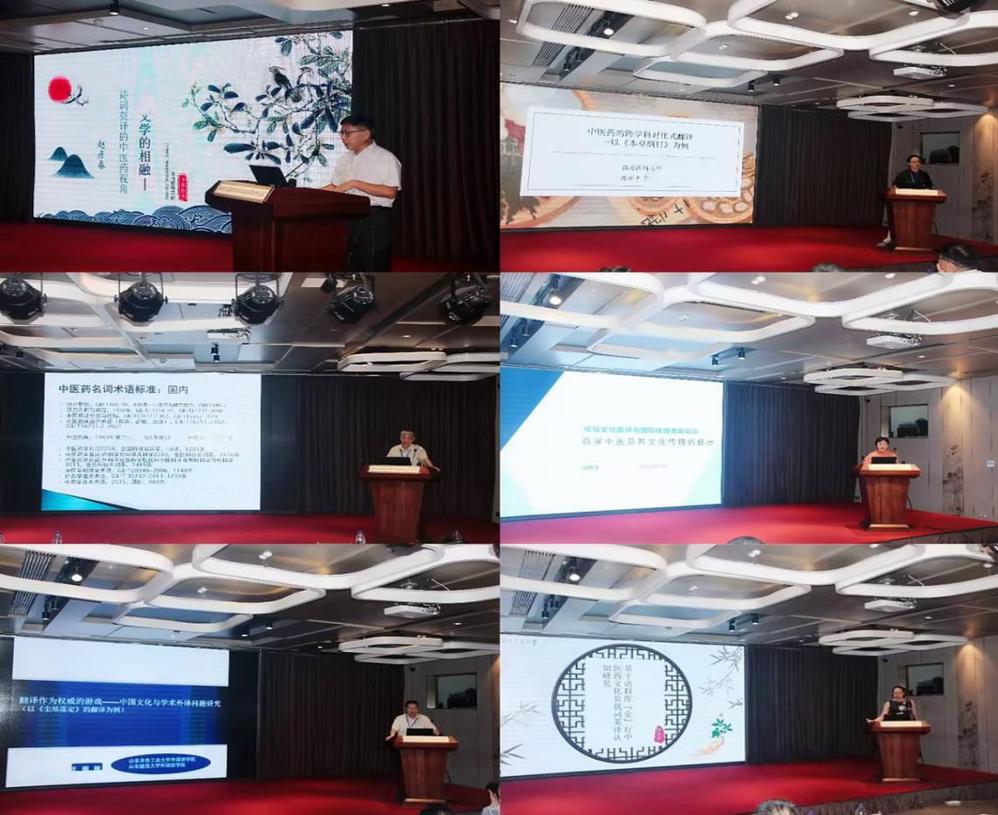
These are keynote speeches of experts.
The forum has set up a platform for the research and development of Chinese traditional culture translation, promoted academic exchange and cooperation as well as the innovative development of academic research. It is meaningful to further promoting the translation and international dissemination of Chinese traditional culture, and creating an open and innovative platform that is conducive to the innovative development of Chinese culture and traditional Chinese medicine culture and the national strategy implementation.
BY: Zhang Weiwei
SOURCE: School of International Studies


